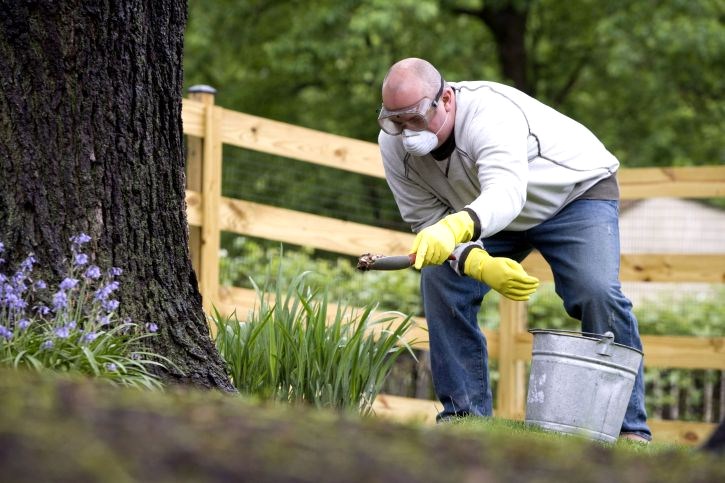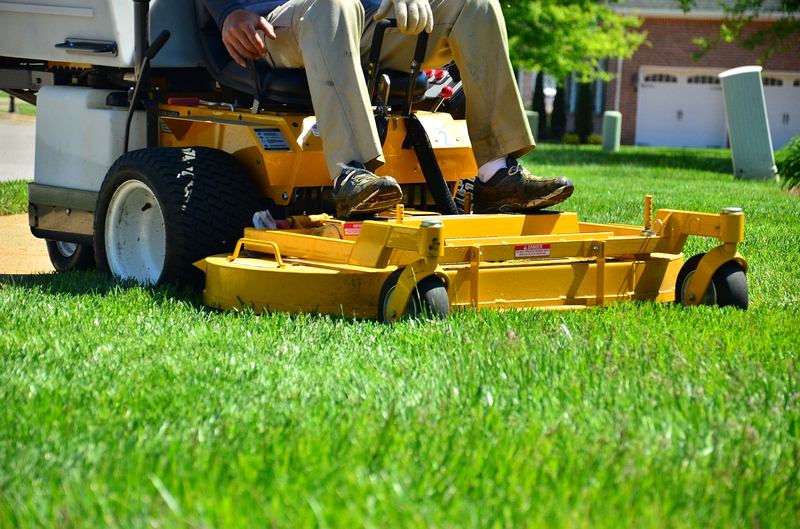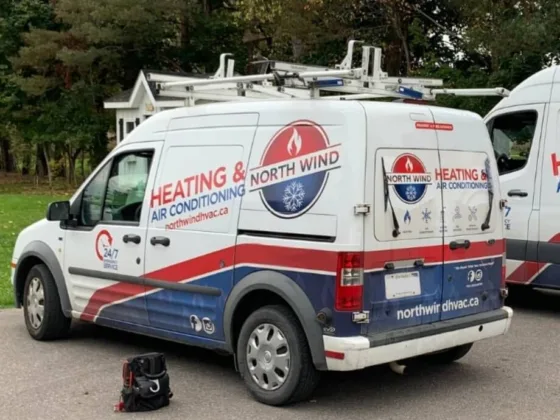When to Fertilize a Lawn? — Determining the best time to fertilize a lawn depends on the grass itself, your climate, and the fertilizer you’re using. Here’s your guide to the ins and outs of lawn fertilization.

Determining the Best Time to Fertilize a Lawn
Knowing the best time to fertilize a lawn is just as important as which fertilizer you use. This go-to guide helps you determine how often you need to fertilizer and suggests a few top conventional and organic fertilizers.
Whether you’re a first time homeowner or a seasoned mower looking for a healthier yard, knowing the best time to fertilize a lawn is one step to having the best-looking grass on the block.
How Often Should I Fertilize?
How often you fertilize your lawn depends on the type of grass that you plant, what climate you live in, and how often you are willing (or feel it’s necessary) to fertilize your lawn. Here are a few basic guidelines for scheduling lawn fertilization:
- If applying fertilizer once a year, do so in the fall.
- If applying fertilizer twice a year, do one round in the fall and another round in the spring. (This is most common.)
- Some techniques will instruct three “batches” across the fall (spaced a month apart) with a “boost” (or partial batch) again in the spring.
- Try to apply your fertilizer on days when it is relatively cool (but not freezing, as it won’t absorb into the ground properly).
- NEVER apply fertilizer in the summer or any time that it’s hot.
Must Read:
What Time of Day Is Best for Fertilizing a Lawn?
Lawn fertilization is not as finicky as water when it comes to the time of day that you apply it to your yard. While many people focused on yard health will swear by some application time or another, an essential aspect is that the grass is dry when you spread the fertilizer. This allows the lawn fertilizer to fall between the blades and down to the soil below.
If you fertilize in the morning, do so on a day when no dew is left. The afternoon is a good time as long as it’s not yet too hot out. The evening is also acceptable because even if dew falls overnight, as long as the fertilizer goes down first, it should be fine.

Best Organic Lawn Fertilizers
Organic lawn fertilizers are a great way to keep your yard healthy for both the grass and your family (and family pets). The top three best rated organic fertilizers are:
- Ringer Lawn Restore: This comes in the form of pellets, and contains all natural ingredients (primarily bone meal, soybean meal, and feather meal) and is designed to keep grass very thick and very green.
- TerraCycle: This is one of the most well-known and popular brands of natural fertilizer. It’s made, essentially, of the waste that worms pass through after digesting soil. This is what ‘feeds’ soil in nature, so it makes it a great fertilizer to enhance the health of your lawn.
- Peace of Mind: The name of the product as well as its goal, this organic fertilizer is designed to be generous on nutrients, and contains a wealth of natural ingredients to help your lawn thrive.
Best Regular Lawn Fertilizers
There are even more conventional lawn fertilizers companies, with dozens, if not hundreds, of different fertilizers designed for different climates, grass types, and lawn preferences. While you’ll need to pick a specific product based on your individual needs, some of the top brands to buy fertilizer from including Schultz, Scotts, Bonide, and Ace.
Each of these products will give specific instructions meant to be followed when you use their fertilizer, so base your decision regarding the best time to fertilize a lawn not just on the information listed here, but on the fertilizer instructions most of all.
References
- When Should I Fertilize My Lawn? – via All About Lawns
Frequently Asked Questions about the Best Time to Fertilize a Lawn

1. What time of year do you fertilize your lawn?
2. What time of the year do you fertilize?
3. How often should you fertilize your lawn?
4. What fertilizer to use on lawn?
Grass Fertilizer Numbers
- Lawn maintenance is more than just mowing, thatching and aerating.
- These main nutrients are nitrogen, phosphorus and potassium and are symbolized on grass foods as N-P-K.
- Soil tests are easy to use and will indicate which, if any, nutrient the area might be deficient in.
More items…





















2 comments
Your Article is very informative. But the article would be better if season wise fertilization tips are added.
Thank you for talking about what could happen if you overfertilize your lawn and how easy it is to do it. I used to think that the more fertilizer you use, the better your lawn will grow and the greener it will become. However, after reading your article, I figure I should find a lawn fertilization expert that can determine how much my lawn will need so I don’t overdo it.